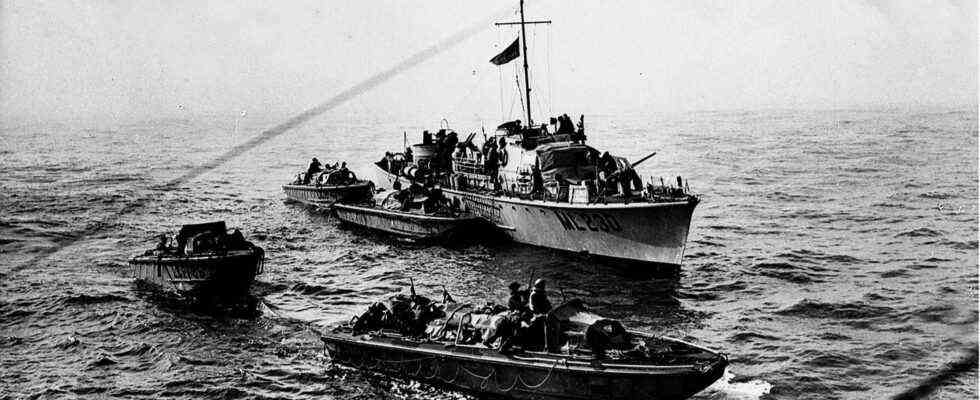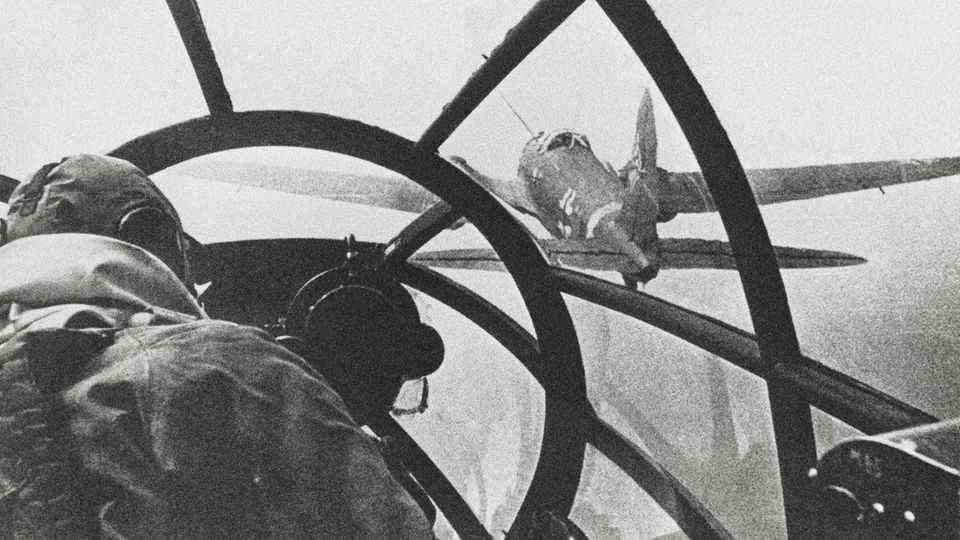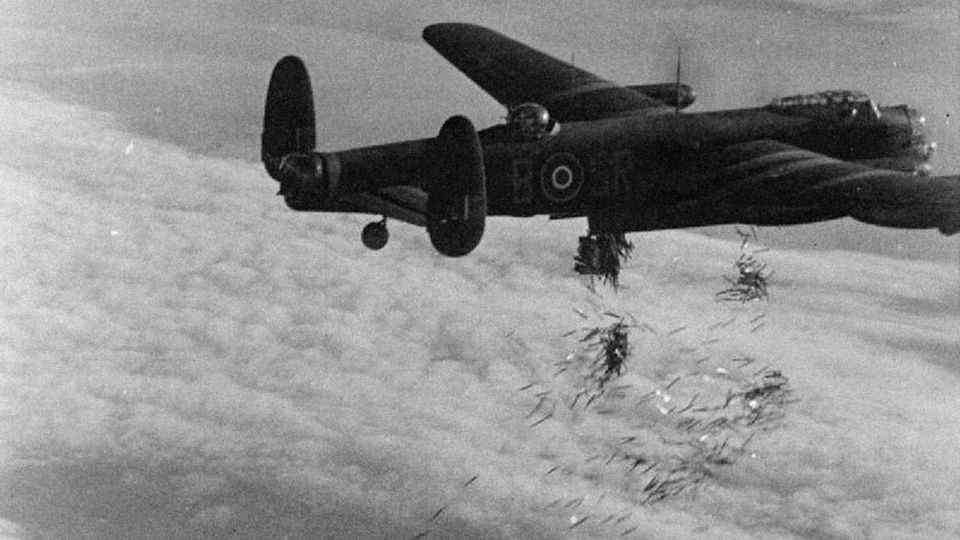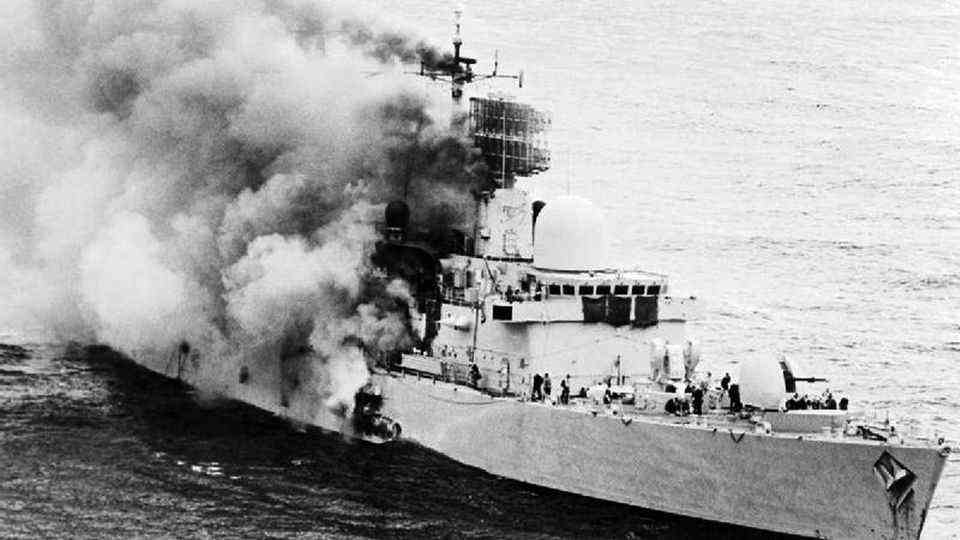The raid on a small coastal town should bring the British a respectable success. The attack resulted in a catastrophe that killed over 3,000 men. The main culprit, Lord Mountbatton, later came up with a reason why Dieppe was not his fault but a necessary sacrifice.
The greatest shortcoming of the British armed forces in World War II was that leadership positions in the military were assigned according to social rank, wrote US military in the aftermath. An extreme example is the British attack on the port city of Dieppe in 1942. Here 6,000 men were sent on a hopeless mission. And all just for the bloated ego of Lord Mountbatton, writes Patrick Bishop in his book “Operation Jubilee”. Mountbatten – “Uncle Dickie” – was the uncle of Prince Philip, who in turn was husband of the British Queen Elizabeth II.
Like the “Light Brigade Assault”
The survivors of the disastrous landing operation compared their mission to another suicide mission on Her Majesty’s service. The “attack of the light brigade” in the Crimean War – only 670 men and not 6000 were sent on a hopeless mission in 1854.
Photo gallery Dieppe Raid 1942 – 8 pictures
8 images
Strictly speaking, the attack on the French port city had no military purpose, it served to save face. In 1942 the British fought off the impending invasion of the island, but otherwise only had to take it with them. The Germans had driven the British troops out of Norway, France, Greece and Crete. In North Africa, the German Africa Corps was on the advance and on the Atlantic, the German submarines interfered with the vital convoy journeys.
A small win for morale
In 1942, before Stalingrad, it was still quite conceivable, if nothing even probable, that the Germans could defeat Russia. Had the Soviet Union collapsed, Hitler could have turned his entire force against Britain. A real invasion would have helped beleaguered Russia, but the British were unable to do so. After the success of smaller command raids on the continent, the idea came up to venture into a somewhat larger action. In size between a commando and a full-blown invasion, the Dieppe Raid. But even if it had been successful, it would have been a pointless operation. Even if the British could have taken the port, that would have damaged Hitler’s image, but by no means would a brigade have forced him to withdraw troops from the east.
“Even the complete destruction of Dieppe,” said Bishop, “would not have contributed to reducing the German ability to wage war.” It was, as one of the planners admitted, an attack only “for the sake of an attack”.
The ego of those responsible
The strategic pointlessness has been replaced by a whole list of operational goals. If the storm on the city had succeeded, a few ships, radio systems, the port installations and a lot more could have been destroyed there. Just like in any other port on the coast. The real motive lay in the leaders who saw an opportunity to get out of a shameful inaction. Mountbatten wanted “to show the Germans, the British public, the Americans and the Soviets a willingness to attack and give the reputation of the Combined Operations Headquarters a new shine,” said Bishop. The Royal Air Force wanted to defeat the Air Force and Canadian commanders were eager to see their men in action.
Due to a storm, the attack on Dieppe was canceled in early July 1942. But a few weeks later it took place anyway. Mainly because Lord Mountbatten wanted to implement the project. “It was the triumph of vanity, stubbornness and ambition that always formed the dark counterpoint to his great ability and great humanity,” writes Bishop.
Attack without any chance
The attack ended in a disaster that did not go beyond isolated successes. Despite the long planning and the Resistance in France, the attacking troops had no useful information about the German defense. And unlike in previous commandos, you no longer met an opponent who had not expected an attack at all.
Above all, it had not been possible to switch off the German fire positions beforehand. The port was defended with machine guns and artillery that covered all entrances. The storming Canadians got into exactly the sections that the Germans had foreseen. They encountered “an almost perfect system of interlocking arcs of fire that together created a vortex of bullets and grenades that would fail any frontal attack on the city unless it was preceded by a devastating bombardment.”
No break into the German defense system
The plan was to land on both sides of the port. There, in a surprise attack, the artillery batteries should be switched off and the city stormed. The first attack was already delayed, so that the troops landed with full visibility. There could be no question of surprise, the Germans shot down the candies who were huddled in the boats. Gunner Tom Hunter was in the front row when the boat’s door fell into the water.
“I jumped into the water that came up to my chest.” With luck, he’ll make it into the shadow of the sea wall. “I didn’t have time to look around and I just wanted to get there as soon as possible.” He then pushed his head into the stones. “There was nothing we could do. I didn’t even get a chance to shoot back.” The group accompanied by Ross Munro, a Canadian journalist, was caught in heavy machine-gun fire while attempting to storm the beach. In 15 minutes the brave troop was shot into a heap of dazed and injured men who were desperately seeking cover.
“We just had to stay close to the wall,” said Sergeant John Legate a few days later. “The crossfire that was coming our way made it impossible to move three feet from the wall or they would have caught us.” Nobody could rescue the wounded. In addition to the machine gun fire, there were also mortar impacts. The wall no longer offered any protection from the steep-fire guns. Photos of the Germans show the heaps of corpses where the wall was damaged and the Canadians sought protection.
Survivors were left behind
Hardly anyone from the first wave managed to cross the dense barbed wire barn. In the first phase of the attack it was already apparent that the charging infantry could not break through the fire belt of the fortified position. Nevertheless, the Canadian commander ordered two pointless follow-up attacks. The troops remained pinned to the beach. “There were snipers everywhere,” said Corporal Jack Poolton. “One hit the edge of my helmet. Guys who tried to throw their hand grenades were hit as soon as they pulled the pencil off.”
Then the Royal Air Force bombs hit their own people. The rising tide pulled the seriously injured on the beach into the sea, where they drowned. “It was amazing,” said Poolton. “There were boots floating in there, there were legs. And pieces of meat. And heads. That was my regiment. These were the boys I had lived with for the last two and a half years.”
Only one operation was successful. The 4th Commandos were able to completely destroy a heavy gun battery west of Dieppe. At 9 a.m. the operation was canceled. At noon the fleet broke away from the coast and those who remained had to surrender. Of 6,000 men were captured in 2010 and nearly 1,000 were killed. A loss rate of over 50 percent within just ten hours.
No consequences for the commanders
The disaster had no consequences for the commanders. They later claimed that the attack on Dieppe was planned as a rehearsal for the Normandy invasion. In fact, the theme of “practicing the great invasion” does not matter before the day of defeat. The negative outcome was not expected, the successful attack was enough of an operational objective in itself. Only the disaster needed another explanation. How absurd it was was explained by tank commander Major General Percy Hobart in a letter to the military historian Basil Liddell Hart. If you wanted to train your own troops in practice, he wrote, you would never choose a heavily defended sector like Dieppe.
In the late 1950s, Mountbatten completed his own heroic legend. In his report, he concluded that Dieppe, despite the terrible losses, had been an important education. Here would have taught the Allies the lessons that helped them on D-Day when they escaped with much fewer casualties than expected. The carnage was unfortunate, but it was ultimately worth it. That was a lie, as Bishop explains. A lie that Mountbatton probably told himself throughout his life.
Patrick Bishop – Operation Jubilee
Also read:
Hitler’s airmen could have won the aerial warfare over England – says mathematics
How a British woman switched off German fighter planes with her invention
Falklands War – How the Pride of the British Fleet was sunk by a deep fryer




